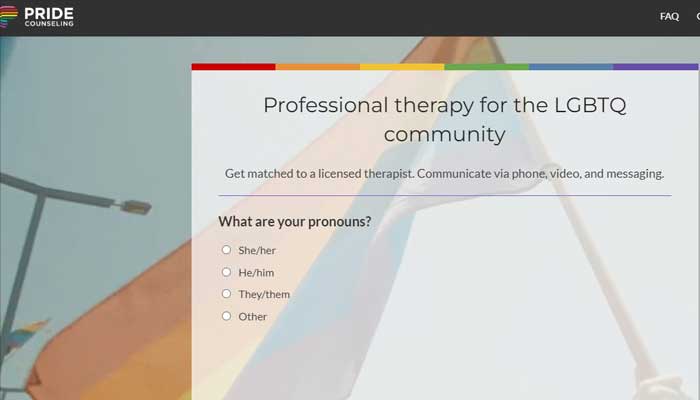My Daughter Is Confused About Her Gender. Here Is How You Can Help Her.

Hello. We understand that this is a confusing time for both you and your daughter.
But we want to commend you for keeping an open mind and encourage you to continue to seek out advice that will help you to better understand what your daughter is going through like you do when you write “my daughter is confused about her gender”.
✔️ Helpful hint.
Here at ANZPath we highly recommend using Pride Counseling for LGBTQ+ Therapy Services. There you’ll be matched with the best gender therapist online that suits you.
It’s convenient, affordable and most of all, they have some of the most skilled gender therapists online.
Fill out this questionnaire at Pride Counseling to get matched with a therapist.
Should I worry if my daughter is confused about her gender?
We’re all just looking to keep our loved ones safe and happy. Therefore, in the spirit of kindness and understanding, we hope to help you learn about this unique facet of our identities, how they are a normal part of the development of many young people, and what it means when these feelings persist.
We would first like to abate some of your worries and consider that whatever changes or feelings your daughter is experiencing, you can do nothing better than offer your support and care.
By reaching out for help and advice, you are making the crucial first steps in ensuring your child has a happy, comfortable development into an adult.
My daughter is confused about her gender, is this normal?
Our gender identity refers to our sense of who we are and how we see ourselves. When our gender identity doesn’t match with our biological sex, this can create feelings of unease and dissatisfaction. This is called gender dysphoria and you can get help from a ROGD therapist.
Those are the two most important terms to understand when considering your daughter’s feelings. We also think it’s important to note that despite gender issues often coming under the LGBTQ+ bracket, someone’s gender identity is distinct from their sexual orientation.
Children might behave in ways that don’t seem to fit with their gender identity. It’s common for young boys to play with dolls, or become interested in feminine clothes, and for girls to pursue traditionally masculine hobbies.
If your child is young, you should know that this is a normal part of growing up, and doesn’t necessarily indicate that they will experience feelings of gender dysphoria in the future.
When a child enters puberty, however, their appearance may begin to change in ways that do not appear to fit with their gender identity, and this is when feelings of dysphoria become more pronounced.
If my daughter is confused about her gender, how can I learn more about her feelings?
You can learn more about gender dysphoria and gender identity thanks to fantastic resources from the NHS and the American Psychiatric Association. Please consider that gender dysphoria, among other mental health issues, is felt by many of us around the world, and that there are many ways for you to seek help for your loved ones so that they can live happier healthier lives.

How can I help my daughter to overcome feelings of gender dysphoria?
Acceptance of your child’s gender identity is the best way to help your child with their feelings of dysphoria.
You should think of this as a natural part of their development, and consider that accepting their gender identity will help them to feel happier in their own skin.
You might also want to seek out a therapist to help your daughter come to terms with their feelings, and resolve any other issues they might have.
Anzpath can help you find the perfect mental health professional online, instantly connecting you to highly specialized therapists for transgender and LGBT people.
